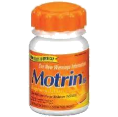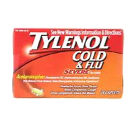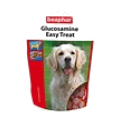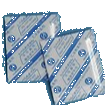|
The Granby Animal Clinic, Inc.
TOP TEN TOXINS IN DOGS REPORTED TO THE PET POISON HELPLINE
* * Chocolate – baking and dark chocolate are the most dangerous, but milk chocolate can be dangerous if enough is ingested. Signs can range from restlessness, vomiting, diarrhea, tremors, seizures and coma. * * Xylitol-sweetener found in sugarless chewing gum and candy, medications, and nasal sprays. Ingestion can cause a rapid drop in blood sugar and liver failure. * * Non-steroidal anti-inflammatory drugs (NSAIDs)-ibuprofen, naproxen etc. Ingestion can cause stomach ulcers and kidney failure. * * Over-the-counter cough, cold and allergy medications containing acetaminophen or decongestions, such as pseudoephedrine or phenylephrine. Signs include lethargy, inappetence, vomiting, liver failure, elevated heart rate, hyperthermia and seizures. * * Rodenticides (rat/mouse poisons) – can cause internal bleeding, weakness, depression, tremors and seizures. * * Insect Bait-Stations-rarely cause poisoning in dogs, but they can cause bowel obstruction. * * Grapes and Raisins-can cause kidney failure. Signs include increased drinking and urination, lethargy and vomiting. * * Insect Bait Stations-rarely cause poisoning in dogs, but they can cause bowel obstruction. * * Prescription ADD/ADHD medications-amphetamines such as Adderall, Concerta, Dexedrine and Vyvanse can cause tremors, seizures, cardiac problems and death in pets. * * Glucosamine joint supplements-overdoses of tasty products typically only cause diarrhea, but in rare cases, liver failure can develop. * * Oxygen absorbers – ingestion of iron containing oxygen absorbers found in food packages or pet treats can cause iron poisoning (silica gel packs such as those found in new shoes or pocketbooks rarely cause problems).
What should you do if your pet gets poisoned?
* * Make sure your pet is breathing normally and acting fine. * * Remove your pet from the area and collect a sample of the material along with the packaging, vial or container. * * Don’t give your dog any milk, food, salt, oil or any other home remedies or induce vomiting without talking to your veterinarian or poison control expert first. The wrong treatment cause more damage. * * Get help-call your veterinarian, a 24 hour emergency clinic or poison control (Pet Poison Helpline -800-213-6680 or the ASPCA Animal Poison Control 888-426-4435)
The prognosis is always best if treatment is started immediately. Waiting until signs of illness are recognized can result in permanent damage or death.
|

|
www.granbyanimalclinic.com © 2003-2014 Granby Animal Clinic, Inc. All rights reserved |









